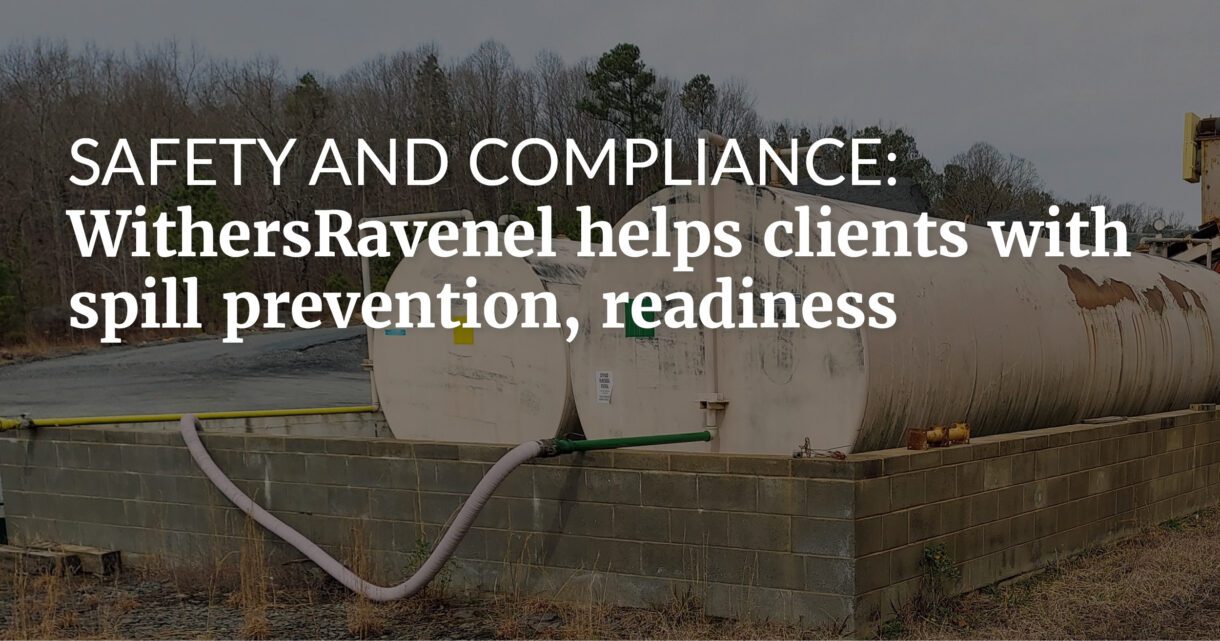
An oil leak can be hazardous for the surrounding environment and communities’ public health. To mitigate the risks of such releases and their harmful impacts, the Environmental Protection Agency (EPA) created the Spill Prevention, Control, and Countermeasure (SPCC) rule to detect oil leaks, spills, or other potential integrity or structural issues at above- and underground facilities with large amounts of oil-based products.
Let’s take a deeper dive into the SPCC rule and how you can take the best steps forward to avoid a spill of your own.
What is the SPCC rule?
Established in 1973 under the authority of the Clean Water Act, the SPCC rule was designed to help facilities prevent a discharge of oil into navigable waters or adjoining shorelines.
Does the SPCC rule apply to me?
The SPCC rule applies to locations that have 1,320 or more gallons of oil or oil products in above-ground storage, or facilities with more than 42,000 gallons of buried oil storage. Above-ground storage only includes oil storage containers (i.e. drums, tote tanks, bulk storage tanks, etc.) with capacities of 55 gallons or more or oil-containing equipment such as transformers. Containers or equipment with capacities less than 55 gallons are exempt from the regulation. Facilities that are most often subjected to the SPCC rule include the following:
- Onshore and offshore oil well-drilling facilities
- Onshore and offshore oil production facilities (including separators and storage facilities)
- Oil refining or storage facilities
- Industrial, commercial, agricultural, or public facilities using or storing oil
- Certain waste treatment facilities
- Loading racks, transfer hoses, loading arms, and other equipment
- Vehicles and railroad cars used to transport oil exclusively within the confines of a facility
- Pipeline systems used to transport oil exclusively within the confines of a facility
- Facilities having oil-containing equipment such as electrical substations
While these are the most common facilities subject to the SPCC rule, bear in mind that any facility that stores, processes, refines, uses, or consumes oil and is non-transportation-related is potentially subject to the SPCC rule per the EPA.
What do I need to do to comply with the SPCC rule?
If your facility meets the prerequisites of the SPCC rule, then you must complete mandatory inspection and testing of oil containers according to industry standards. Container material, age, location, exposure to weather, and susceptibility to corrosion should factor into any inspection or testing program.
In addition, the facility owner or operator must complete an SPCC Plan to prevent oil spills at that location.
How often are SPCC tests and inspections performed?
Tests and inspections should be performed in accordance with normal industry standards. Factors such as the age of the container, materials used to construct the container, corrosion, weather, and location should be considered when crafting an inspection schedule.
What is an SPCC Plan?
An SPCC Plan is a comprehensive set of instructions on how to prevent a spill at a specific location, and how to safely respond should a spill occur.
Elements of an SPCC Plan include general spill response procedures, facility information such as maps and diagrams, and emergency contact information for responsible parties and authorities in the event of a spill.
How can WithersRavenel assist with my SPCC Plan?
WithersRavenel works directly with clients to gain a comprehensive view of their spill-response readiness. Additionally, we conduct a thorough inventory of their on-site hazardous or fuel-related material storage, including substance type, substance volume, and storage type.
Based on the findings of these investigations, WithersRavenel works with the client to develop an SPCC Plan that complies with federal regulations and satisfies additional industry-based guidelines or best practices. Additionally, WithersRavenel can provide the required Professional Engineer (PE) certification for the SPCC Plan.
If the client needs additional assistance with plan implementation, we develop maintenance, inspection, and record-keeping logs for their use. We also develop and implement client-specific training classes to educate staff in spill prevention and spill response procedures.
